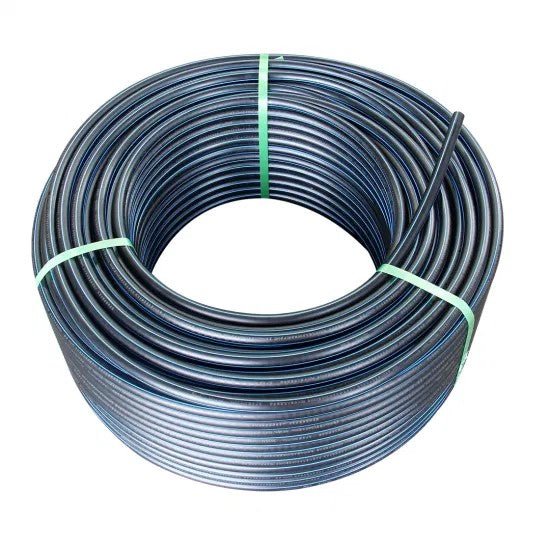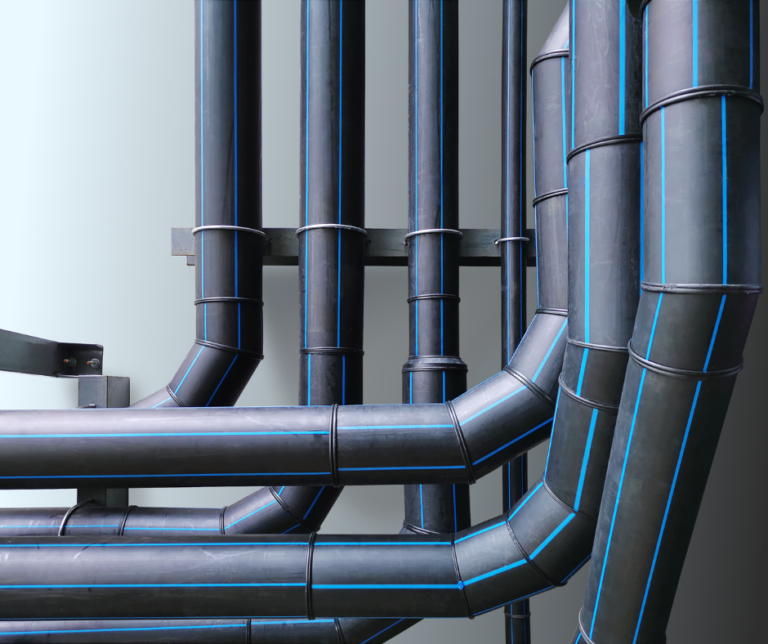The Advancement of American Plastics HDPE Pipe Manufacturing: What You Need to Know
Wiki Article
Recognizing the Trick Conveniences of HDPE Pipe for Water and Wastewater Administration
The use of HDPE pipe in water and wastewater monitoring provides numerous advantages that merit factor to consider. Its extraordinary durability and long life-span make it a recommended choice for several tasks. Furthermore, the product's resistance to rust and chemical damage enhances its reliability in different settings. Nevertheless, the benefits extend past just durability and resistance. Discovering its cost-effectiveness and environmental effect exposes a lot more engaging factors for its prevalent adoption in contemporary facilitiesPhenomenal Durability and Long Life

HDPE pipe attracts attention for its exceptional sturdiness and long life, making it a favored selection in water monitoring systems. Built from high-density polyethylene, these pipelines can stand up to substantial pressure and anxiety, ensuring trusted performance gradually. Their robust nature enables them to sustain extreme ecological problems, including temperature level variations and soil activities, which can cause other materials to stop working.
The lifespan of HDPE pipelines frequently exceeds 50 years, supplying an economical service for communities and markets alike. Additionally, the material's lightweight residential or commercial properties simplify setup, minimizing labor costs and durations. This toughness decreases the requirement for frequent fixings or substitutes, better improving its financial charm.
In water monitoring applications, the reliability of HDPE pipelines suggests less interruptions and improved solution connection, making them essential to sustainable facilities growth. The mix of toughness and durability solidifies HDPE's function as a cornerstone in reliable water monitoring solutions.

Resistance to Corrosion and Chemical Damage
While lots of products surrender to deterioration and chemical damages over time, HDPE pipes exhibit exceptional resistance, making them perfect for numerous water management applications. This resilience comes from the molecular structure of high-density polyethylene, which is inherently non-reactive and does not rust like metals or degrade from exposure to rough chemicals. Therefore, HDPE is highly effective in environments with aggressive substances, such as wastewater systems that might contain acids, bases, and natural solvents.
Additionally, HDPE pipes can endure environmental aspects such as dirt level of acidity and saline problems, better boosting their suitability for varied applications (Pipe Supplier American Plastics Midland). Their capacity to keep architectural honesty gradually minimizes the threat of leakages and failings, which is critical in making certain the security and reliability of water circulation and wastewater monitoring systems. The resistance to corrosion and chemical damages substantially adds to the general performance and long life of HDPE piping solutions.
Cost-Effectiveness and Economic Advantages
When thinking about the economic ramifications of water management systems, the cost-effectiveness of HDPE pipelines becomes evident. These pipelines offer lower installment and upkeep prices compared to traditional products like metal or concrete. Their lightweight nature simplifies transport and setup, leading to minimized labor expenditures. Additionally, HDPE pipes show a long life-span, typically exceeding half a century, which equates to fewer substitutes and long-term cost savings.The resistance of HDPE to rust and chemical damage minimizes the demand for expensive repairs and substitutes. The pipes also sustain effective water circulation, reducing power prices related to pumping systems. By reducing leakages and water loss, HDPE pipes add to considerable financial benefits for communities and markets alike. Generally, the first financial investment in HDPE piping can yield significant financial returns over the lifespan of the water monitoring system, making it a sensible option for sustainable framework development.
Environmental Sustainability and Minimized Impact

Versatility and Adaptability in Installment
Due to the fact that of their distinct properties, HDPE pipelines offer amazing versatility and flexibility in installment, making them appropriate for a vast array of applications. Their lightweight nature enables easier handling and transport, lowering labor costs and installation time. HDPE pipelines can be bent and formed to fit various surfaces and task demands, which is especially advantageous in testing environments.Furthermore, their resistance to rust and chemical damages permits installment in diverse settings without the need for specialized protective finishes. The capability to fuse joints creates a continuous, leak-free system, boosting the total honesty and integrity of the installation. HDPE's flexibility also accommodates ground movement, reducing the danger of damage in locations susceptible to moving soil. In general, these attributes make HDPE pipelines not just functional but additionally a recommended selection for water and wastewater administration systems.
Often Asked Questions
Exactly How Does HDPE Pipe Compare to PVC in Water Administration Applications?
HDPE pipeline offers superior adaptability, resistance to rust, and sturdiness contrasted to PVC. Its lighter weight promotes easier installation, while its long lifespan lowers replacement prices, making HDPE a recommended option in water management applications.What Is the Life Expectancy of HDPE Pipeline Under Typical Conditions?
Under common problems, HDPE pipelines can have a lifespan varying from 50 to 100 years. Their toughness and resistance to deterioration contribute to their long-term performance in various applications, making them a trusted option for facilities.Are HDPE Piping Recyclable After Their Life Span?
Yes, HDPE pipelines are recyclable after their service life. Pipe Supplier American Plastics Midland. They can be processed and repurposed right into learn the facts here now new items, significantly lowering environmental influence and advertising sustainability within the industry, making them an eco-friendly choice for piping optionsWhat Is the Installment Process for HDPE Piping?
The setup procedure for HDPE pipes entails website prep work, trenching, pipeline fusion or mechanical joining, backfilling, and pressure screening. Appropriate strategies ensure a sturdy and reliable system for moving water and wastewater effectively.Can HDPE Pipeline Be Utilized for Both Safe And Clean and Non-Potable Water Systems?
Yes, HDPE pipes can be utilized for both potable and non-potable water supply. Their adaptability, resilience, and resistance to rust make them appropriate for various applications, making certain risk-free and efficient transport of water in various contexts.Report this wiki page